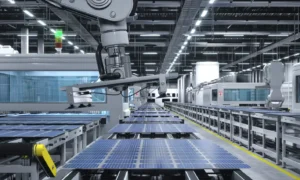Solar energy is on the rise, and for good reason: In addition to being a clean, renewable source of power that can help reduce your carbon footprint, it can also save you money on your utility bills. The key is to maximize your homes solar energy potential so that you can get the most out of your investment. Here are our top 10 tips on how to optimize your solar energy system and cut utility costs.
1. Choose the Right Solar Panels
Not all solar panels are created equal. It is essential to choose high-quality panels from a reputable manufacturer to ensure their efficiency and longevity. Look for panels made from monocrystalline or polycrystalline silicon, which typically have higher efficiencies than thin-film or amorphous types. Additionally, research warranties offered by manufacturers; a longer warranty period is often an indicator of better quality and reliability.
2. Properly Size Your System
To maximize your solar energy potential, it is crucial to accurately assess your households electricity usage and size the system accordingly. An oversized system will cost more upfront but may not provide additional benefits beyond meeting your electricity needs, while an undersized system will result in less power generation than needed. A professional installer or reliable online calculator can help determine the ideal size for your specific needs.
3. Optimize Panel Orientation and Angle
The orientation and angle of your solar panels have a significant impact on their energy production capacity. Generally, south-facing installations receive the most sunlight throughout the day in North America; however, even east or west-facing systems can still be effective if properly angled. Panels should be tilted at an angle close to the latitude where they are installed; this ensures optimal exposure to sunlight year-round. Consult with installation professionals to determine the best orientation and angle for your specific location.
4. Keep Panels Clean and Clear of Debris
Dirt, dust, and other debris can accumulate on solar panels over time, reducing their efficiency by blocking sunlight. Schedule regular cleanings (at least once or twice a year) to ensure your system operates optimally. In most cases, a simple rinse with a garden hose is sufficient, but if more stubborn grime exists, gently use soap and water to remove it.
5. Minimize Shading
Shade significantly reduces the amount of energy produced by solar panels— even small areas of shade can have significant impacts on overall system performance. Be sure to install panels in locations free from shading caused by trees, buildings, or other obstructions for maximum efficiency.
6. Install Energy-Efficient Appliances
To further reduce electricity consumption and enhance the benefits of your solar energy system, consider replacing older appliances with those that are ENERGY STAR certified or come with high-efficiency ratings. Power-saving strategies include using LED lightbulbs throughout the house or installing smart thermostats to better manage heating and cooling usage through automation or apps.
7. Use Solar-Generated Electricity Wisely
Solar systems produce varying amounts of electricity throughout daylight hours; maximizing these fluctuations can save utility charges by using appliances during peak production periods when possible – for example doing laundry or running the dishwasher when solar power is at its highest output levels.
8. Monitor System Performance
An essential part of maximizing your solar energy potential involves regularly monitoring your systems performance to ensure it is functioning optimally and identify any issues needing attention. Most solar inverters have connected software accessible through smartphones or computers that provide real-time performance data, including electricity production, consumption, and potential issues with the system.
9. UtilizeEnergy Storage Solutions
If your location experiences frequent power outages or has high time-of-use electricity rates, investing in a solar battery storage solution can help you maximize your solar energy usage and save on utility costs. By storing excess solar energy produced during the day for use during periods of low production or high electricity demand, you can further reduce reliance on grid electricity and increase savings.
10. Find Financial Incentives and Rebates
Your homes solar energy potential is also impacted by the overall cost of equipment and installation. Be sure to research available financial incentives in the form of tax credits, rebates through local utility companies, or even community-based group purchasing discounts to further cut down on installation costs and increase your return on investment in a solar system.
Taking advantage of these top 10 tips will help ensure that you get the most out of your homes solar power system – harnessing renewable energy to both benefit our planet while lowering your utility bills simultaneously.



































